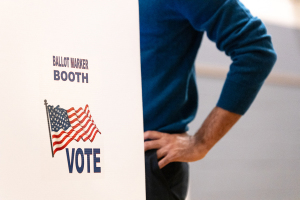European Evangelicals Say Debt Crisis is a Moral Not Economic Issue
As European heads of state meet in Brussels for yet another round of talks to address the Eurozone crisis, Evangelical Christians are saying the problem is fundamentally moral, not economic, and that leaders must do their “utmost” to resolve it.
The European Evangelical Alliance (EEA), a coalition of the national Evangelical Alliances of Europe and a number of European mission agencies, told The Christian Post that European leaders must commit to "solidarity" with the countries suffering most, which requires a commitment of financial resources from both public and private sources in wealthier countries.
"They must call economic leaders, steering committees of banks and business leaders to give a better example of stewardship," wrote EEA General Secretary Niek Tramper in an email to CP. He also stated political leaders must "refrain from high bonus incomes, advocating stability and sustainability rather than empowering pure market principles.”
Tramper has also called for leaders to do nothing less than "their utmost" to resolve the crisis, according to Christian Today. He also said the continent’s economic woes were caused by a spiritual crisis of fear and egoism-and a lack of love and respect for God and others.
Leaders of the 27 E.U. countries are heading to the Belgian capital to discuss a new plan that addresses Greece’s debt and expands the 440 billion euro ($660 billion) European Financial Stability Facility. Two meetings are planned at the summit: one for all 27 heads of state, and another for the 17 members of the single currency.
German Chancellor Angela Merkel received the go-ahead from German parliament to strengthen the Eurozone rescue fund as she heads to the meetings. Merkel, who grew up in Communist East Germany as a pastor’s daughter, said, “No one should take it for granted that there will be peace and affluence in Europe for the next half century.”
British Prime Minister David Cameron has said the Eurozone crisis is a “contagion” and one of his priorities is establishing a “firewall” to keep that contagion from spreading to the U.K.
But the EEA, which represents 15 million European Evangelicals from 35 countries, maintains that political and economic measures are not enough.
“The crisis is not accidental but a consequence of a moral crisis,” Tramper said according to Christian Today. “Human and social values of justice, freedom and solidarity have been replaced by distrust, greed and self-enrichment.”
Merkel may recognize the need for a spiritual response. Last month at the International Meeting for Prayer and Peace in Munich (a conference organized by Roman Catholic laypersons), Merkel asked for the support of faith communities.
According to the conference’s website, Merkel said, “I ask you to help us with your prayers and your conference here to simply make it clear that Europe is a rich continent and we should be able to avoid also consuming the wealth of future generations.”



























